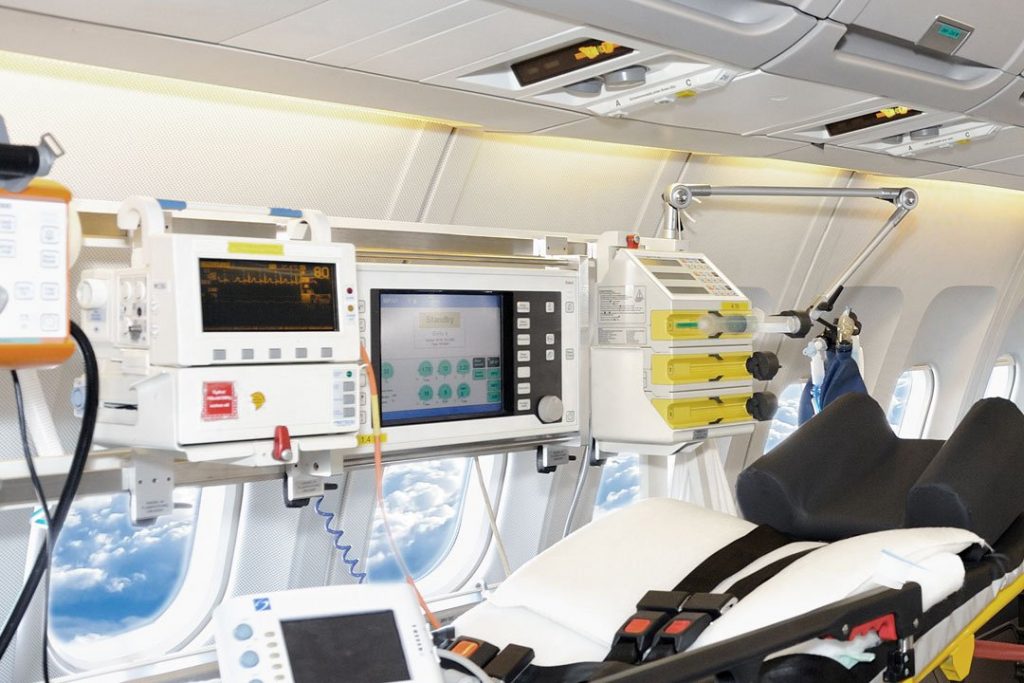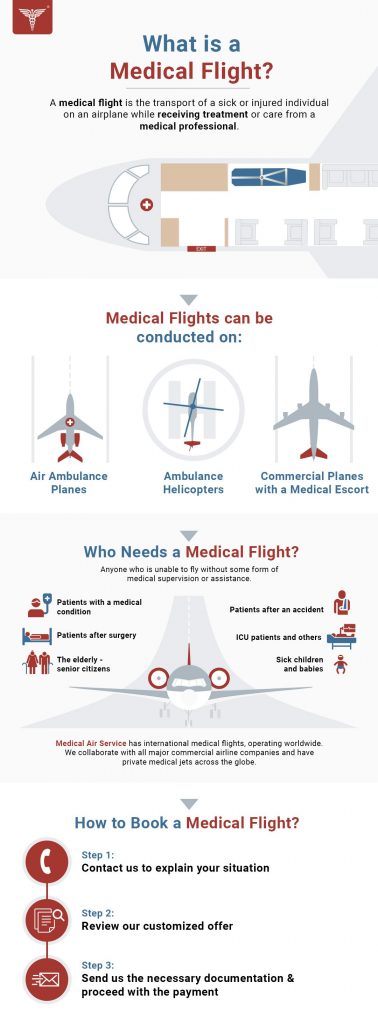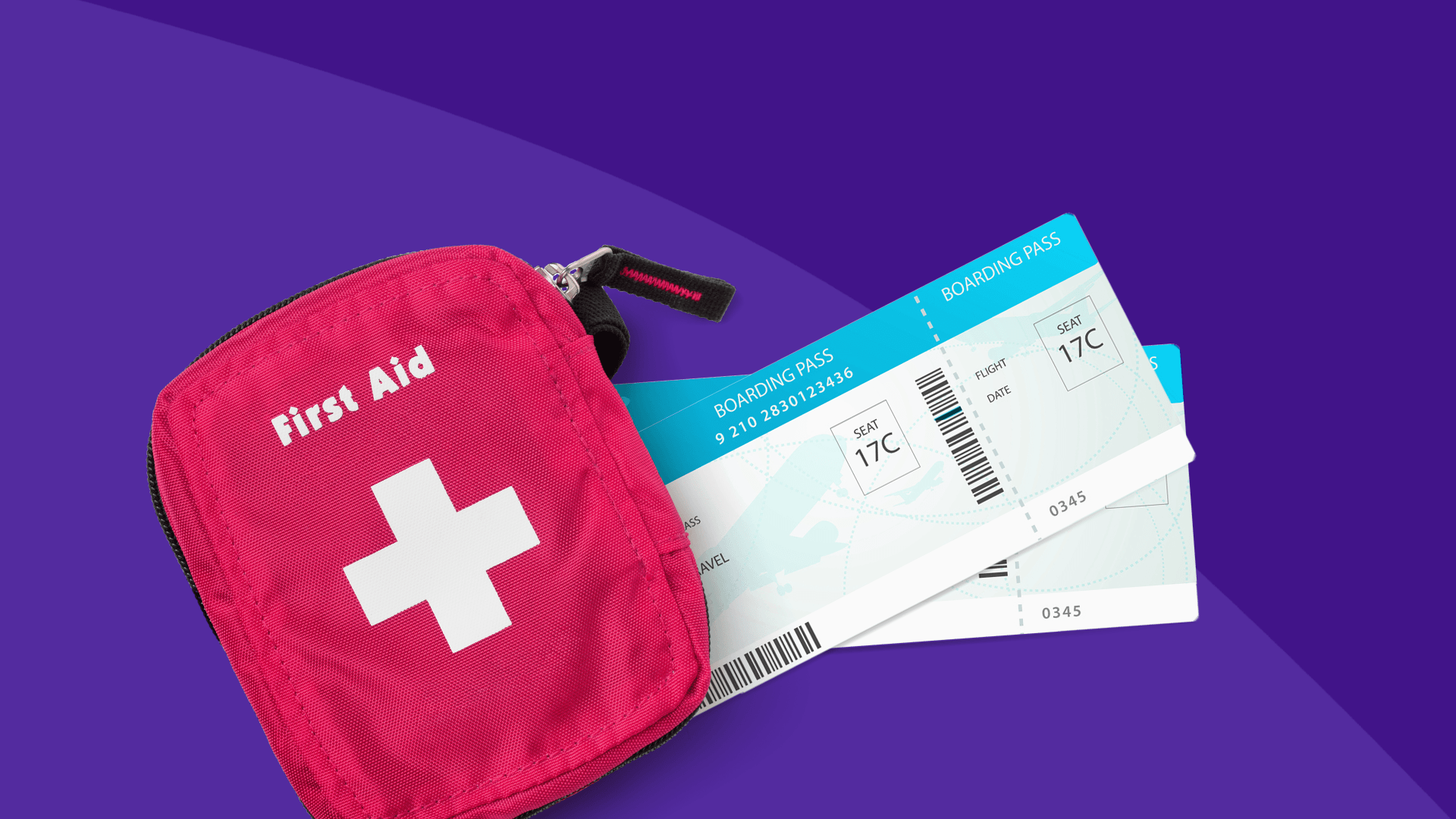Throughout this article, you will learn about the options available for arranging in-flight medical assistance during a business jet charter. Whether you have a pre-existing medical condition or simply want peace of mind, it’s important to understand how to handle medical emergencies while in the air. We’ll discuss the different services and resources available to you, as well as key considerations to keep in mind. By the end, you’ll have a clear understanding of how to ensure your health and safety while flying on a business jet charter.

This image is property of travelsort.com.
Introduction
Flying can be an exciting and convenient way to travel, but what happens if a medical emergency occurs while you’re in the air? Can you arrange for in-flight medical assistance if needed? This article will provide you with all the information you need to know about in-flight medical assistance. Whether you’re a frequent flyer or someone considering flying private for the first time, understanding the availability and process of arranging medical assistance during a flight is crucial for your peace of mind.
Understanding In-flight Medical Assistance
What is in-flight medical assistance?
In-flight medical assistance refers to the provision of medical aid and care during a flight. This assistance can range from emergency medical interventions to non-emergency medical consultations and treatments. The goal of in-flight medical assistance is to ensure the well-being and safety of passengers who experience health issues while in the air.
Why is in-flight medical assistance important?
In-flight medical assistance is of utmost importance for several reasons. Firstly, it provides immediate care to passengers who may experience sudden health problems during a flight, ensuring their well-being until they can reach appropriate medical facilities. Secondly, in-flight medical assistance helps alleviate the anxiety and stress that passengers may feel in case of a medical emergency, as they know that professional help is readily available. Finally, in-flight medical assistance is crucial for individuals with pre-existing medical conditions, as it allows them to travel with confidence, knowing that their health needs can be addressed during the flight.
Who provides in-flight medical assistance?
In-flight medical assistance can be provided by various parties, depending on the type of flight and the services offered by the charter provider. The primary provider of medical assistance is the crew on board the aircraft, including the pilots and flight attendants. They are trained in basic first aid and emergency procedures and can provide initial assistance until further medical support is available. Additionally, some business jet charter companies collaborate with medical organizations and have medical professionals on board who can provide specialized care and treatment during a flight.

This image is property of static.vecdn.net.
Types of In-flight Medical Assistance
Emergency medical assistance
Emergency medical assistance encompasses the immediate response and care provided during life-threatening situations on board an aircraft. Examples of emergencies that may require immediate medical attention include heart attacks, strokes, severe allergic reactions, and respiratory distress. In these cases, the crew will prioritize stabilizing the passenger’s condition and may even need to coordinate with ground medical support to determine the best course of action, such as making an emergency landing.
Non-emergency medical assistance
Non-emergency medical assistance on board a business jet charter involves the provision of medical consultations, treatments, and medications for passengers who may require non-urgent medical care during a flight. This can include services such as administering medication, managing chronic illnesses, addressing minor injuries or illnesses, and providing general medical advice. Non-emergency medical assistance aims to ensure the well-being and comfort of passengers throughout the duration of their flight.
Availability of In-flight Medical Assistance
Do all business jet charters offer in-flight medical assistance?
The availability of in-flight medical assistance varies among different business jet charter providers. While many charter companies prioritize the safety and well-being of their passengers and offer some form of in-flight medical assistance, it is essential to check the specific services provided by each company before making your travel arrangements. Some companies may collaborate with medical organizations to have medical professionals on board, while others may rely solely on the training and expertise of their crew.
How to check the availability of in-flight medical assistance?
To check the availability of in-flight medical assistance, it is advisable to contact your chosen business jet charter provider directly. Inquire about the services they offer and whether they have medical professionals on board or access to ground medical support if needed. It is also essential to provide any pertinent medical information or special requirements you may have to ensure that the charter provider can adequately accommodate your needs.

This image is property of www.aafp.org.
Arranging In-flight Medical Assistance
Pre-flight arrangements
Arranging for in-flight medical assistance should ideally be done during the pre-flight planning phase. When booking your business jet charter, inform the charter provider about any pre-existing medical conditions, allergies, or specific medical requirements you may have. This information allows the crew and medical professionals, if available, to be prepared and equipped with the necessary resources to address your needs during the flight.
Communication with the charter provider
Clear and open communication with the charter provider is crucial when arranging for in-flight medical assistance. Discuss your medical needs and concerns with the provider, ensuring that they understand the level of care you may require during your flight. If you have specific requests, such as the presence of a medical professional on board, inquire about the charter provider’s ability to fulfill these requirements.
Medical documentation and requirements
In some cases, charter providers may require medical documentation or clearance from a healthcare professional before allowing passengers with certain medical conditions to fly. This requirement is in place to ensure the safety and well-being of all passengers on board. If you have a particular medical condition, make sure to obtain any necessary documentation and clearance well in advance of your flight.
Cost and Coverage
Does arranging in-flight medical assistance come with an extra cost?
The inclusion of in-flight medical assistance may come with an additional cost, depending on the business jet charter provider and the extent of the services offered. Some charter companies may include basic emergency medical assistance in their standard packages, while others may charge an additional fee for more comprehensive medical support. It is essential to discuss pricing and coverage with the charter provider to understand the financial implications of arranging for in-flight medical assistance.
Insurance coverage for in-flight medical assistance
When considering in-flight medical assistance, it is crucial to review your travel insurance policy to ensure that it covers any potential medical emergencies during your flight. Some insurance policies may have specific provisions for air travel-related medical incidents, but it is always recommended to clarify this with your insurance provider. Additionally, some business jet charter companies offer insurance options that may provide coverage for in-flight medical assistance. Consider these options when making your travel arrangements.

This image is property of www.singlecare.com.
Medical Professionals on Board
Are medical professionals available on business jet charters?
Some business jet charter companies have medical professionals available on board or on call to provide specialized medical care during a flight. These medical professionals can range from registered nurses to doctors and paramedics, depending on the level of care required by the passengers. Having medical professionals on board ensures that passengers with complex medical needs can travel safely and receive appropriate care throughout their journey.
Roles and responsibilities of medical professionals
The roles and responsibilities of medical professionals on board a business jet charter include assessing and diagnosing medical conditions, providing treatments and medications, monitoring vital signs, and coordinating with ground medical support when necessary. The presence of medical professionals ensures a higher level of medical expertise on board and enhances the safety and well-being of passengers requiring medical assistance.
Emergency Medical Equipment
What kind of emergency medical equipment is available on business jet charters?
Business jet charters are equipped with a range of emergency medical equipment to manage medical emergencies during a flight. This equipment can include automated external defibrillators (AEDs) to address cardiac arrest, basic life support (BLS) equipment, oxygen cylinders, emergency medications, and trauma kits. The availability of such equipment ensures that the crew and medical professionals can initiate appropriate medical interventions promptly.
Regulations and standards for emergency medical equipment on board
The aviation industry follows strict regulations and standards regarding the emergency medical equipment that should be available on board aircraft. These regulations ensure that the necessary equipment is in place to address potential medical emergencies effectively. Charter providers must comply with these regulations and regularly inspect and maintain their emergency medical equipment to guarantee its functionality and readiness.

This image is property of static.vecdn.net.
Medical Diversion
What is a medical diversion?
A medical diversion occurs when a flight is redirected to a different destination due to a serious medical emergency on board. In some cases, the severity of a passenger’s condition may require immediate medical attention that cannot be provided on the aircraft. In such instances, the flight will be diverted to the nearest suitable airport where the passenger can receive prompt medical care.
When and why is a medical diversion necessary?
A medical diversion is necessary when a passenger’s health condition poses a significant risk and requires urgent medical intervention that cannot be adequately provided on the aircraft. This could be due to the unavailability of specialized medical equipment, the need for advanced medical facilities, or the urgency of the passenger’s situation. The decision to divert a flight is made by the pilot in consultation with ground medical support and is prioritized to ensure the passenger’s well-being and safety.
Communication with Ground Medical Support
Establishing communication with ground medical support
During a medical emergency on board, maintaining communication with ground medical support is critical. The crew will initiate contact with ground medical support to seek guidance and coordinate necessary actions. This communication allows ground medical support to assess the situation remotely, provide medical advice, and recommend an appropriate course of action, including the need for a medical diversion if required.
Sharing medical information during the flight
In the event of a medical emergency, it is vital to share relevant medical information with the crew and any available medical professionals on board. This information can include details about pre-existing medical conditions, allergies, ongoing medications, and any recent medical procedures. Providing accurate and detailed information enables the crew and medical professionals to make informed decisions and provide appropriate medical care during the flight.
Handling Medical Emergencies
Immediate response to medical emergencies
The crew’s immediate response to a medical emergency involves assessing the situation, stabilizing the passenger’s condition, and initiating basic life support measures if necessary. This can include performing cardiopulmonary resuscitation (CPR), using automated external defibrillators (AEDs), administering oxygen, and managing other immediate medical needs. The crew will also contact ground medical support for further guidance and assistance.
Collaboration with medical professionals
If there are medical professionals on board, the crew will collaborate with them to ensure coordinated and appropriate care for the passenger in need. The medical professionals will assess the situation, provide specialized treatments or interventions if required, and offer guidance to the crew. This collaboration maximizes the level of medical care available on board and improves the passenger’s chances of a positive outcome.
Emergency protocols and procedures
Business jet charter companies have well-established emergency protocols and procedures in place to guide the crew’s response to medical emergencies. These protocols ensure that crew members are trained in emergency procedures, able to recognize and respond to medical emergencies effectively, and able to coordinate with ground medical support and any on-board medical professionals. Regular training and drills are conducted to maintain the crew’s preparedness and proficiency in handling medical emergencies.
The Importance of Pre-flight Health Assessment
Why is pre-flight health assessment necessary?
A pre-flight health assessment is necessary to ensure that passengers with pre-existing medical conditions are fit to fly and to identify any potential risks or medical needs that may arise during the flight. The assessment allows the crew and medical professionals, if available, to have a comprehensive understanding of a passenger’s health status and make necessary arrangements to provide appropriate medical assistance during the journey. It also helps determine if additional medical documentation or clearance is required before the flight.
Importance of disclosing relevant medical information
Disclosing relevant medical information is crucial when undergoing a pre-flight health assessment. By providing accurate and detailed information about your medical history, current medications, allergies, and any recent medical procedures, you enable the crew and medical professionals to adequately prepare and respond to your needs. Failure to disclose relevant information may compromise the effectiveness of in-flight medical assistance, as the crew may not have the necessary knowledge or resources to address unforeseen medical situations.
Conclusion
Arranging for in-flight medical assistance is indeed possible, and it is essential for anyone considering flying private to be aware of the availability and procedures involved. The provision of in-flight medical assistance ensures the safety and well-being of passengers who may experience medical emergencies or require non-emergency medical care during their journey. By understanding the types of assistance available, checking the services offered by charter providers, and effectively communicating your medical needs, you can ensure a comfortable and safe travel experience. Remember to disclose any pertinent medical information and consider travel insurance coverage to further enhance your peace of mind. Safe and healthy travels!





